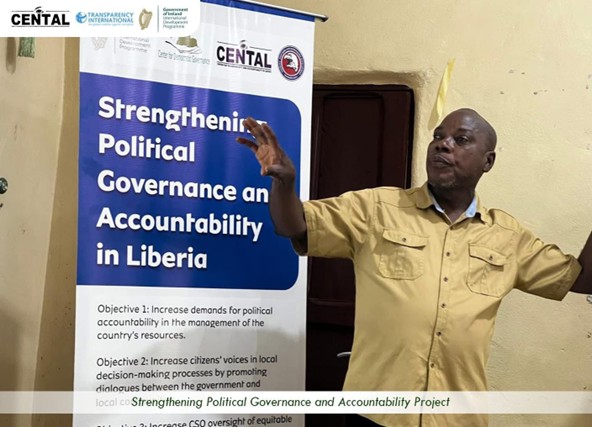The project Beneficiaries in Bong County who participated in Local Governance awareness campaigns acknowledged their lack of knowledge on the Local Government Act and the functions of the County Council that is now responsible to manage the county budgets and projects.
Before the awareness on the Local Government Act, citizens were unable to ask questions about how decisions were made to fund projects. Rebecca, a twelfth-grade student at St. Peter’s Episcopal High School, recalls feeling powerless: “I used to think that only government officials had the power to make decisions. But now I understand that we as citizens have a role too. If we don’t hold our leaders accountable, who will?”
A turning point in citizens’ recognition of their participation and decision-making on funding projects came when Citizens and Civil Society Organizations, including the Foundation for International Dignity, raised concerns and threatened to sue local authorities over the controversial allocation of US$280,000 to renovate the Presidential Palace in Gbarnga. The backlash was swift because initial decisions and budgets approved by the County Council were made without public hearings and did not align with the County Development Agenda (CDA).
This led to an intervention by the Consortium and in a conference with the County Council and Local Government Officials. At the conference, representatives from the County Council and the office of the Superintendent admitted to the omission of the procedure for approving development projects that were identified in the CDA which does not include the presidential palace in Gbarnga. This dialogue has fostered partnership and collaboration and paved the way for inclusive decision-making aligned with the county’s development priorities.
The Chairman of the Bong County Council, Aaron Sackie Fenlah, stated: “The support from the Governance CSOs Consortium is timely. Our communities needed to understand how the County Councils works. With the radio and community engagements, people can now ask us direct questions and understand how they can support our work in the county.”



Leave a Reply